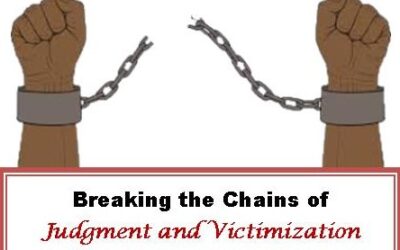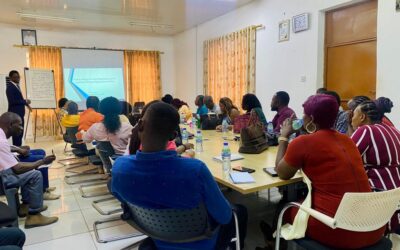The traditions of various ethnic groups in Sierra Leone expect local chiefs to settle certain disputes at the community (village) level. Complaints relating to insults are among the most common that come before the chiefs and the Local Courts. Women seem to be highest offenders. In the Mende tradition, insults break regulations for personal integrity, respect for one another and harmonious co- existence, for which offenders are liable to pay fines. Usually, when such cases are reported and the allegations challenged by the defendant before the chiefs and the local courts, both the plaintiff and the defendant are ordered to pay upfront an amount of money before the matter can be heard. Both the chiefs and local courts say the money will be used to pay fines due the victorious party. This clearly constitutes an abuse of process, and a serious infringement of the rights of both defendants and plaintiffs. It certainly places a burden on all the parties, and sometimes inhibits a person who feels genuinely offended from coming before the courts or chiefs to file complaints.
This article will discuss the laws governing the rights of parties and how they are being negated at two distinct levels of the local justice system. It will also analyse the implications for the litigants and the image of the Local Court system. It will also make recommendations to forestall the odd practices and make way for improvements.
Sierra Leone is a signatory to (and has ratified some of) the agreements and conventions that are applicable in the anomalies raised in this article. These include Article 14 (2) of the International Covenant on the Civil and Political Rights (ICCPR), Article 7 (1) (6) of the African Charter, all of which speak of the right to presumption of innocence of an accused or defendant. Specifically, they enumerate that a fundamental principle of the right to fair trial is the right of every person to be presumed innocent until and unless proven guilty after a fair trial. This right applies not only to treatment in court and the evaluation of evidence, but also to treatment before trial and goes on until the final judgement and appeal. This right requires that chiefs, chairmen and panel members refrain from pre-judgement of the case, and that authorities do not make statements implicating a case party, or about the guilt or innocence of a defendant before the outcome of the trial.
Article 14 (7) of the ICCPR states that no one may be tried or punished again in the same jurisdiction for an offence for which he or she has been tried or punished (fined) before.
Cases of insult emanating from local communities that come before either local courts or the chiefs often attract a series of fines that are for the most part exploitative, to say the least. When a defendant admits guilt for an allegation of insult in a chiefs ‘barry’, he or she pays a case withdrawal fee (equal to the summons fee), a compensation to the plaintiff, as well as a fine for a breach of community law. The two former payments go to the plaintiff and the latter to the chief. The three categories often vary depending on the preference of the individual chief. Where the allegation is challenged by the defendant, some chiefs impose parallel fines usually between Le 20,000 – Le 30,000 (approximate $7) on the rival parties, and then advise the aggrieved party to take his/her case to a Local Court with a fresh summons fee of Le 30,000 (approximately $7). During hearing, if the statements of the plaintiff and his witnesses corroborate, the court’s panel imposes parallel fines on the plaintiff and the defendant usually of between Le 50,000 – Le 100,000 (or more), contingent upon the immorality used in the insult(s). This fine is in fulfilment of the Mende traditional belief that ‘an offence is committed only when the circumstance involves more than one individual.’ This legitimizes the imposition of the fine even on the aggrieved party. It is intended that this fine shall be heaped on the losing side at judgment.
Central to our concern are the issues relating to multiple fine payments by the plaintiff and the defendant for reported cases of insult(s), with the associated abuses that accompany them. Social and legal fines are intended as punishments for wrongs done to others in society, and in other cases are imposed on individuals found guilty in disputes to deter them from repeating the act. If this is the case, we may then ask why our chiefs and the Local Courts impose them on case parties even before proper proceedings start? Obviously, the imposition of fines on the litigants during hearing is an implied presumption of the guilt of both sides and has nothing to do with any traditional dictate. Besides, it adds insult to injury to impose such a fine on an already aggrieved person seeking redress in a court of law. This overtly abuses their right of presumption of innocence as they have been punished unjustifiably. Then there is the aspect of double punishment. The fees imposed before the start of proceedings, as well as after the judgment and probably are all additional violations. As civil matters have the purpose of providing compensation for the wrong(s) done to the aggrieved party, in the circumstances described above the Local Courts have added colours of exploitation, part of which profits the presiding panel members’ pockets.
The multiple fees ordered by the courts increases the expenses incurred by the guilty party, who may have also incurred expenses of the victorious party during the proceedings. Usually, it runs to such high sums that most losers find it difficult to pay even when divided into the usual two or three instalments of payments. This often leads to difficulty for the victorious party receiving the fines imposed and the delay by the courts in enforcing the judgments. This also has the unfortunate effect of creating a poor reputation for the Local Courts and its administration of justice – a replica of the pre-civil war situation in this country.
In light of the above, CARL wishes to proffer these recommendations as remedies to improve on the traditional and local administrative set up regarding the adjudication of insult cases.
– A unified cost of summons fees at all courts of community and section chiefs along with minimal fines for cases of insults.
– The abolition of pre-judgement parallel fines that violate citizens’ right to fair trial, while at the same time lowering the financial burden on parties.



